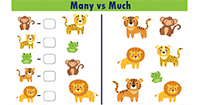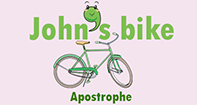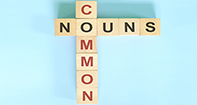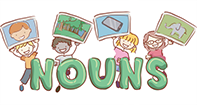×
Change Avatar
What are Nouns
console:
What is a Noun?
No matter where you go, or what you do, you can’t escape nouns! They are the people, places, or things that do the action provided by a verb! Let’s take a look at some more details about nouns.
What Is a Noun?
A noun is a person, place, thing, idea, feeling, or concept. It gives a name to things that will be doing the action provided by the verb. Nouns can be people, places, things, animals, seasons, planets, days, time, and more!
Often nouns serve as the subject in a sentence, because the verb needs something to do or be what it represents.
Often nouns serve as the subject in a sentence, because the verb needs something to do or be what it represents.

What Are Different Types of Nouns? There are many different kinds of nouns, and we can divide them into categories. The four basic types are Common, Proper, Concrete, and Abstract.

Common & Proper Nouns
Common Nouns include the basic nouns: people, animals, places, and things.
Proper Nouns are specific, formal names for common nouns, requiring them to be capitalized.
Here are some examples:
Common Noun Proper Noun Proper Noun Proper Noun girl Sherri Mother Grandma dog Fido Mini Schnauzer Labrador Retriever city Tokyo Washington, D.C. London car Tesla Ford F-150 Ferrari
Concrete & Abstract Nouns
Concrete Nouns are those that represent things that are countable and uncountable.
Abstract Nouns represent concepts, ideas, and feelings.
Concrete Nouns - Countable & Uncountable
Countable nouns are just that - nouns that you can count. They can be both singular to represent one item, or plural when there is more than one. Plural nouns are usually formed by adding an -s or -es to the end of the word, but there are some more complex rules that you should know. Be sure to check out the guide on Countable & Uncountable Nouns.
Uncountable nouns cannot be counted like feelings or concepts or those that are difficult to quantify without a container. They come in two forms: mass and abstract.
-
Mass nouns represent a group that cannot be easily measured, like weather, liquids, some baking ingredients, actions, or gasses.
Examples include, rain, sugar, gold, reading, oxygen, and coffee.
-
Abstract nouns are those that represent concepts or feelings.
Examples include patience, beauty, love, opinion, happiness, and self-control.
While these represent the basic kinds of nouns, there are others for you to explore as well, including collective & partitive nouns, gerunds, compound nouns, predicate nouns, and irregular nouns. A firm understanding of the different types of nouns will help you with both writing and your grammar.
There are many different kinds of nouns, and we can divide them into categories. The four basic types are Common, Proper, Concrete, and Abstract.


Common & Proper Nouns
Common Nouns include the basic nouns: people, animals, places, and things.
Proper Nouns are specific, formal names for common nouns, requiring them to be capitalized.
Here are some examples:| Common Noun | Proper Noun | Proper Noun | Proper Noun |
|---|---|---|---|
| girl | Sherri | Mother | Grandma |
| dog | Fido | Mini Schnauzer | Labrador Retriever |
| city | Tokyo | Washington, D.C. | London |
| car | Tesla | Ford F-150 | Ferrari |
Concrete & Abstract Nouns
Concrete Nouns are those that represent things that are countable and uncountable.
Abstract Nouns represent concepts, ideas, and feelings.
Concrete Nouns - Countable & Uncountable
Countable nouns are just that - nouns that you can count. They can be both singular to represent one item, or plural when there is more than one. Plural nouns are usually formed by adding an -s or -es to the end of the word, but there are some more complex rules that you should know. Be sure to check out the guide on Countable & Uncountable Nouns.
Uncountable nouns cannot be counted like feelings or concepts or those that are difficult to quantify without a container. They come in two forms: mass and abstract.
Uncountable nouns cannot be counted like feelings or concepts or those that are difficult to quantify without a container. They come in two forms: mass and abstract.
-
Mass nouns represent a group that cannot be easily measured, like weather, liquids, some baking ingredients, actions, or gasses.
Examples include, rain, sugar, gold, reading, oxygen, and coffee.
-
Abstract nouns are those that represent concepts or feelings.
Examples include patience, beauty, love, opinion, happiness, and self-control.










